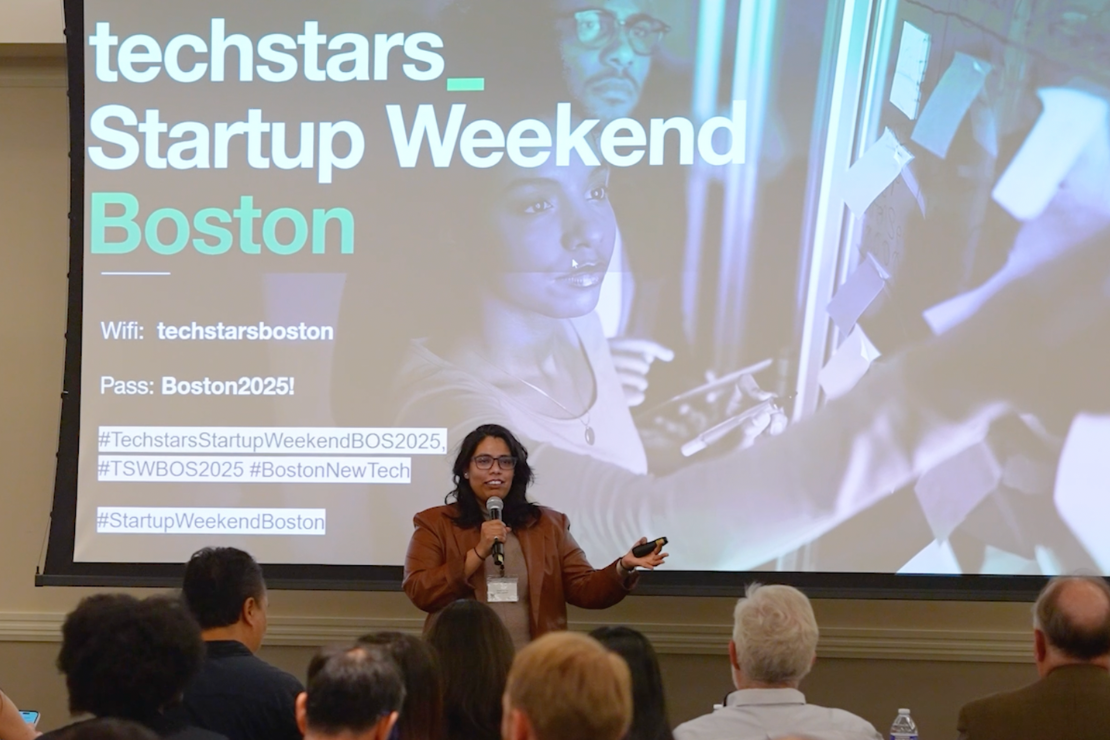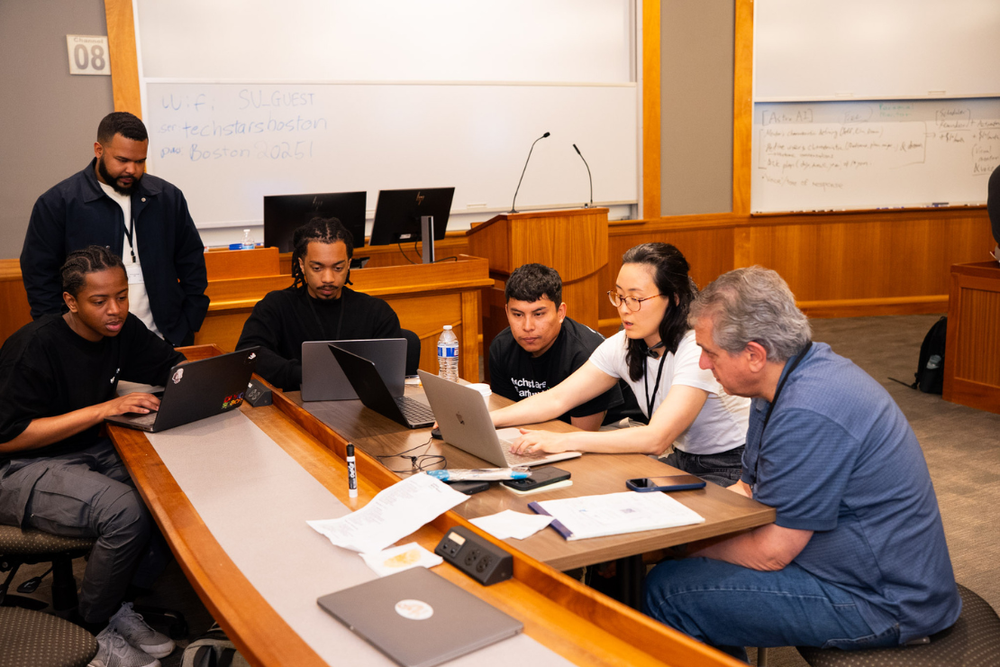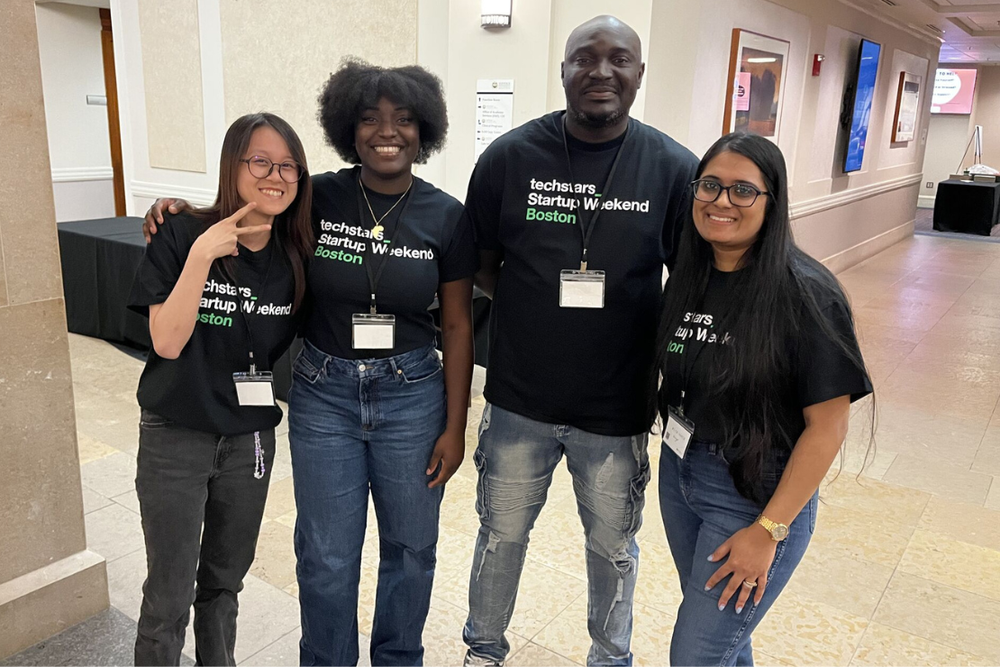Techstars Startup Weekend Boston 2025 Impact Report
Sep 16, 2025

Techstars Startup Weekend Boston 2025 reaffirmed the enduring strength of the Startup Weekend model. Over the course of 54 hours, more than 240 participants — founders, mentors, judges, and partners — came together to build, test, and launch new ideas.
The result was striking: 18 teams formed, and 15 delivered functional MVPs by Sunday evening. What set this year apart was not only the impressive output, but the depth of transformation participants experienced.
Startup Weekend Boston 2025 became a living laboratory — where uncertainty turned into clarity, setbacks became breakthroughs, and founders discovered resilience under pressure.
Founder Growth and Transformation
Participants consistently reported significant increases in confidence, clarity, and situational awareness. The structured sequence — idea formation, team building, customer validation, product development, and pitch — gave them both discipline and freedom to experiment.
Many experienced the “Saturday slump,” moments when assumptions collapsed or prototypes failed. But far from signaling defeat, these moments became crucibles of resilience.
This pattern gave rise to a central insight we are calling Shweta’s Hypothesis: breakthroughs wobble. Founder growth is not linear; dips, pivots, and reversals are not setbacks, but accelerants of long-term strength. Our data confirmed it: the majority of teams that pivoted mid-course ended up stronger by Sunday.
Ecosystem Cohesion

Startup Weekend Boston drew its power from community. More than 20 mentors spanning legal, product, design, storytelling, and engineering gave generously of their time. A 1:8 mentor-to-participant ratio created one of the densest guidance environments in Startup Weekend history.
The diversity of participants amplified this strength. Teams combined technical and non-technical roles at an 89% integration rate, dissolving silos that often plague early ventures.
The sector mix reflected Boston’s unique ecosystem: technology and AI, healthcare, and academia each took strong representation, while consumer, fintech, and sustainability added fresh edges.
Partnerships and Community Support
The event was powered by 25+ partners including GT Law, Red Bull, Suffolk University, and Startup Boston. These partners not only offered resources but helped shape the environment of learning and trust.
Digital signals confirmed resonance: more than 2,000 website views in the final week, strong social media engagement, and an active Slack workspace that extended collaboration beyond the weekend.
Judging and Refinement
Nine judges joined in 2025, offering breadth of perspective. For 2026, the model will be streamlined to four judges, ensuring sharper deliberation while maintaining credibility.
This refinement exemplifies our ethos: learning, adjusting, and iterating — the same principles we ask of our founders.
Looking Ahead: April 10–12, 2026

We are proud to announce the next edition of Techstars Startup Weekend Boston will take place April 10–12, 2026.
Building on 2025’s foundation, the event will:
- Test Shweta’s Hypothesis more deliberately,
- Implement structured mentor-to-team assignments, and
- Execute a refined judging model.
Our mission remains constant: to deliver a world-class founder experience, nurture community trust, and elevate Boston as a flagship Startup Weekend on the global stage.
Final Word
Techstars Startup Weekend Boston 2025 proved that Startup Weekend is not just an event, but a movement of transformation. Each edition demonstrates that when founders gather, mentors give, and communities converge, the ecosystem does not merely sustain itself — it grows stronger.
As we look to April 2026, we invite you to continue this journey with us. The impact is real, the momentum undeniable, and the future bright.
— Shweta Agrawal (Lead Organizer) & Steve Vilkas (Co-Organizer)
